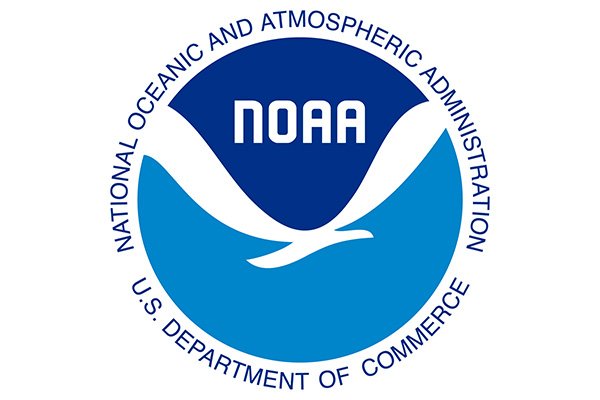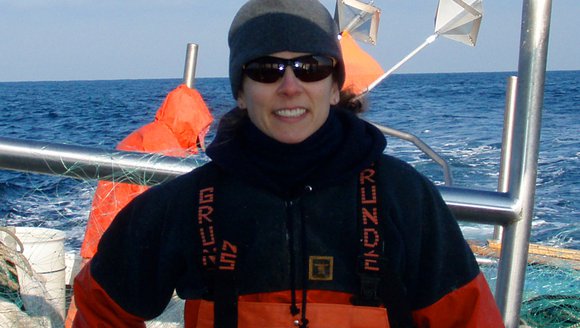Northeast Climate Integrated Modeling (NCLIM)
Enabling forward-looking management strategies for Northeast fisheries.
To date, fisheries decision-making has relied on past experiences and observations as a predictor of future conditions. As climate change accelerates, there is a critical need to anticipate changes in the future of fisheries that have not occurred in the past. The need to anticipate the rapidly changing world around us extends from individuals, to businesses, communities, and societies at large. Transforming fisheries' decision-making to a more forward-looking process will require interdisciplinary research efforts that advance our knowledge and understanding of both natural and human systems. The NCLIM project will develop such scientific knowledge through the development of integrated models, to help enable effective adaptation measures in fisheries in the Northeast.
Project Goals:
- Develop a regional community of practice that integrates broad interdisciplinary and regional perspectives in the development of an integrated modeling framework for the region.
- Build a flexible integrated modeling framework for climate informed fisheries decision-making in the Northeast U.S.
- Apply the framework and deliver candidate climate-informed assessment models to the research stock assessment process for Atlantic cod and black sea bass.
The Northeast U.S. Shelf Ecosystem is a complex, rapidly changing region that supports a wide array of living marine resources and resource-dependent human communities. Commercial and recreational fisheries are key contributors to the economy of the region, contributing billions in economic value and generating hundreds of thousands of job opportunities. This economic productivity is threatened by the rapid changes underway in this ecosystem, and the limited use of climate data in the assessment and management process amplifies the challenges facing this industry and the communities that rely on it.
The Northeast U.S. is experiencing unprecedented, rapid changes in ocean conditions, and as such, is positioned to be ideal test case for understanding the process of human adaptation to climate change. Over the last forty years, the waters of the Northwest Atlantic have warmed at a rate four times the global average, and recent decadal warming is among the fastest in the world. This warming has already led to geographic shifts in commercial species and declines in economically and culturally important stocks.
Due to the rapid pace of change in the region, there is a critical need to develop and apply science knowledge and tools that can help support decision-making in our fisheries. Making forward-looking decisions will be crucial as we learn how to adapt to these unprecedented changes.
Some of the critical questions facing the region include:
- How do we sustainably harvest resources as they move outside historic ranges?
- How will fisheries stay profitable when fisheries productivity and distribution change?
For generations, people have answered questions like these based on past experiences, however, accelerating climate change means that past experiences are increasingly unreliable for informing forward-looking decisions. As climate change accelerates, there is a critical need to anticipate changes in the future of fisheries that have not occurred in the past. This type of transformation, from a reliance on historical observations to forward-looking decision-making, requires research that integrates our knowledge of natural and human systems.
The goal of our NCLIM research is to develop an integrated modeling framework to inform marine resource decision-making under projected climate change in the Northeast U.S. This framework will integrate: 1) global climate models, 2) regional oceanographic models, 3) ecosystem and population models, and 4) human dimensions models. We will demonstrate the utility of this integrated modeling framework to inform fisheries decision challenges for species that have demonstrated shifts in distribution and changes in productivity (Atlantic cod and black sea bass). Our proposed integrative modeling initiative aims to improve our understanding of the changing ocean and tackle the challenge of building climate resilience in the fisheries of the Northeast U.S. Ocean health, food security, community persistence, and our seafood economy all depend on finding a path forward that mitigates risks and maximizes opportunities.
Project Team
- Lisa Kerr, Ph.D.
Senior Research Scientist, Fisheries Science
Gulf of Maine Research Institute - Kathy Mills, Ph.D.
Research Scientist, Integrated Systems Ecology
Gulf of Maine Research Institute - Andrew Pershing, Ph.D.
Director of Climate Science
Climate Central - Enrique N. Curchitser, Ph.D.
Department of Environmental Science
Rutgers University - Malin L. Pinsky, Ph.D.
Department of Ecology, Evolution, and Natural Resources
Rutgers University - John R. Wiedenmann, Ph.D.
Department of Ecology, Evolution, and Natural Resources
Rutgers University - Timothy Jason Miller, Ph.D.
Research Fishery Biologist
NOAA Northeast Fisheries Science Center - Vincent S. Saba, Ph.D.
Research Fishery Biologist
NOAA Northeast Fisheries Science Center - Jonathan J. Deroba, Ph.D.
Research Fishery Biologist
NOAA Northeast Fisheries Science Center
Principal Investigator
Project Sponsor
This project is made possible through the generous support of the NOAA Coastal and Ocean Climate Applications (COCA) program. Northeast Climate Integrated Modeling is a collaborative effort with the Northeast Fisheries Science Center (NEFSC), jointly supported by NOAA’s COCA program and the NEFSC.
Read More
-
Improving Climate-Readiness of US Fisheries
The National Oceanic and Atmospheric Administration (NOAA) has awarded the Gulf of Maine Research Institute $1.1 million to investigate impacts of climate change on groundfish. …
Announcements
-
Gulf of Maine, Explained: Ecosystem Modeling
Technology has transformed nearly every workplace in the country over the last 30 years. Research labs are no exception, as modern computing has made significant …
Gulf of Maine, Explained
-
Ocean Warming and Climate Leadership
2018 was another warm year for the Gulf of Maine. Our scientists contributed to the foremost national conversation about warming and how it affects our …
Announcements
-
Big Data, Big Opportunity for Climate & Fisheries
Our collective ability to accurately assess and forecast fish abundance is critical to the biological and economic sustainability of the Gulf of Maine.
Announcements




